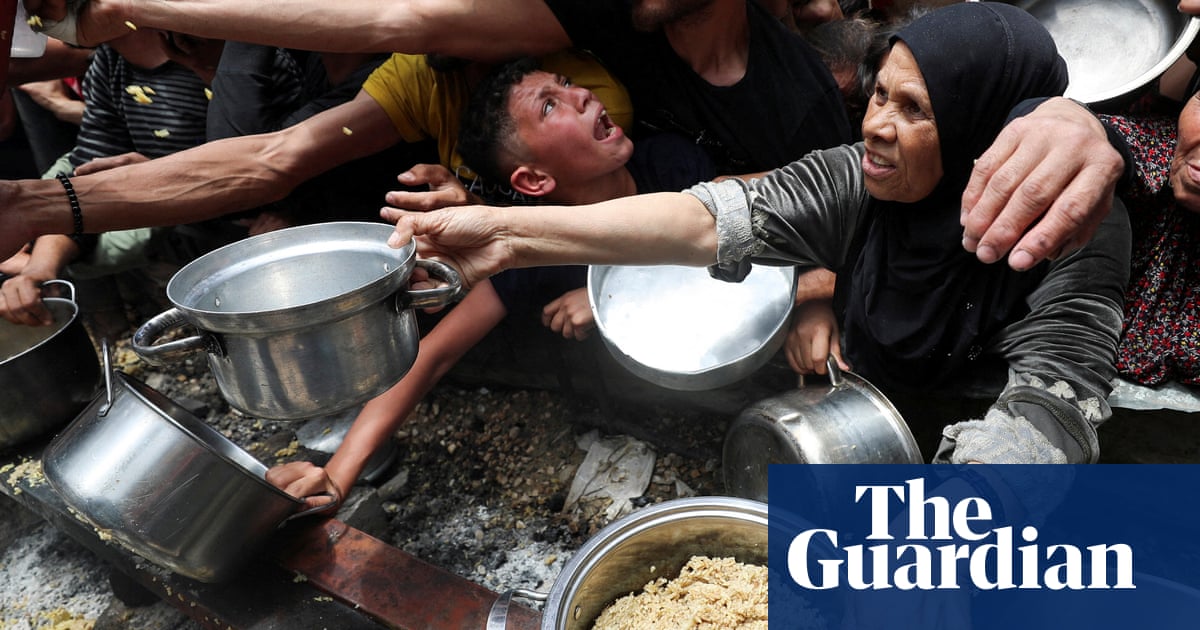For many decades, Israel was proud of its officials’ ability to defend and argue and convince around the world. Thewar in Gazahas seen the country’s public diplomacy face its greatest test – as was made clear on Wednesday morning with arobust exchangebetween David Mencer, a spokesperson for the Israeli government, and Nick Robinson, a presenter of the BBC’s flagship Today programme.
Mencer stressed that he was speaking on behalf of the prime minister and made an uncompromising statement of Israel’s arguments, including the accusation that Hamas – described as a “genocidal death cult” – uses civilians as human shields.
“Israel faces a moral paradox right now. It’s been created by Hamas. We have an opportunity to strike every military target, but when we do, we get condemned, you know, or we don’t strike them, and we reward the use of human shields,” he told Robinson.
But the core of the confrontation was Israel’s blockade ofGaza. Here some listeners may have decided Mencer was involved in a deliberate attempt to obscure the reliably reported reality on the ground for political, ideological and strategic ends.
Certainly, the key Israeli argument that there is “no hunger in Gaza” is hard to sustain. The same goes for Mencer’s accompanying claim that there is food in Gaza, and that markets are open.
It is true that there are some basics still available in the territory, even after 11 weeks of a total blockade by Israel, and that a few stalls and shops still offer some basics. But the vast majority of the 2.3 million Palestinians living in the Gaza Strip cannot afford to buywhat they need to survive, and , if they could, stocks would suffice only for a tiny number.
There is a limited amount of often spoiled flour, of which a standard 25kg sack costs hundreds of dollars, and of fresh food such as potatoes and tomatoes, a kilo of which costs between $10 and $15. There is no dairy and almost no meat. Free bakeries shut weeks ago for lack of fuel and flour, while community kitchens which once served 1m meals a day are closing fast. Almost all the main warehouses run by big international NGOs, such as the World Food Programme or Unrwa, are now empty.
Many people are living on canned peas or dried beans, of which there is a finite supply.
There are, however, thousands of tonnes of food, medicine, shelter, fuel and everything else necessary for survival ready to be sent into Gaza, but that can happen only when Israel opens the checkpoints it controls along its perimeter.
It is true, as Mencer said, that a substantial amount of aid was brought in and stockpiled during the 10-week ceasefire that came into effect in mid-January, but this has all gone – and this influx did not offset the consequences of a war that has devastated agriculture, water supplies, sanitation systems and health services, leaving the population gravely weakened and vulnerable to disease.
Essential medicines used to treat malnutrition are now being rationed, aid workers say, and medical supplies are running low.
Then there is the obvious evidence of images of clearly malnourished people – often children. Mencer suggested that such cases may not be proof that thousands or tens of thousands of others are in the same dire condition, but a report on Monday fromthe Integrated Food Security Phase Classification (IPC), a consortium of experts that has for decades advised the UN and governments, said that Palestinians living there faced “a critical risk of famine”.
The IPC, which has developed a five-level famine warning system, found that between 1 April and 10 May this year, 244,000 people in Gaza were in the most critical food security situation: level five, “catastrophe/famine”. The IPC noted that there had been a “major deterioration” in the food security situation inGazasince its last assessment in October 2024.
Mencer denied that Israel was using starvation as a deliberate strategy, asking why, if that was the case, would Israel have sent “enough food aid to fill Wembley Stadium in London to the brim 80 times over” into Gaza during the conflict.
But the aid allowed into Gaza through much of the 19-month conflict has been inadequate, unpredictable and subject to much-criticised bureaucratic procedures that blocked many shipments and slowed more. It was also hard to distribute given the widespread destruction and continuing violence.
Almost 53,000 people have been killed since the Israeli offensive began. Sanitation systems, water supplies and health services are in ruins. Roads are choked with rubble, and bulldozers are systematically targeted by Israel.
Israeli officials argue thatHamas steals and sells aidto fund its military and other operations. Therefore, they say, the restriction of aid is necessary to defeat the militant Islamist organisation, which killed more than 1,200 people, mostly civilians, in its raid on Israel on 7 October 2023, and to secure the return of the 57 of the 251 hostages taken that day who are still held in Gaza.
Instead, Israel has made its own plan to distribute aid from six major hubs in southern Gaza, which would be run by private contractors and defended by Israeli troops.
Aid agencies say they have robust mechanisms to prevent leakage of aid, and that Hamas steals little, if any. They also say they believe the new Israeli scheme is impractical, inadequate, likely to be dangerous and is potentially unlawful as it would displace hundreds of thousands of Palestinians in Gaza, forcing them into ever smaller parts of the territory. Given this, they said they cannot agree to cooperate with it.
